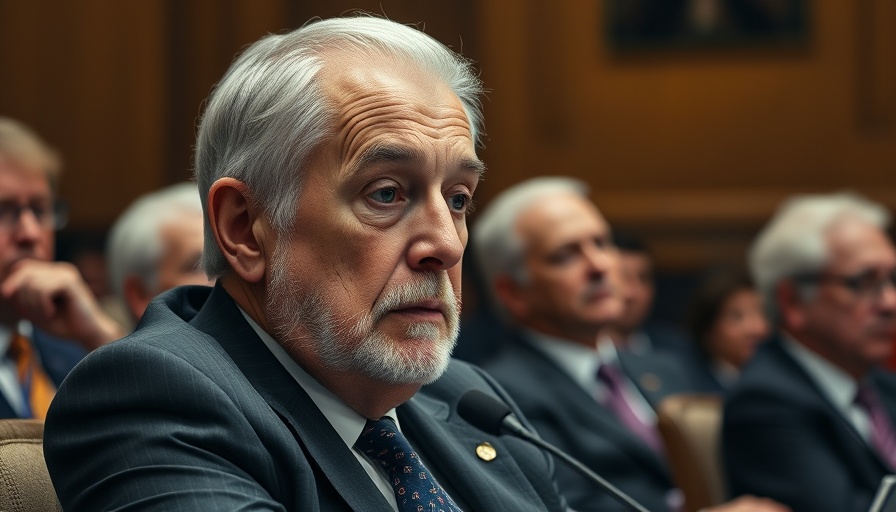
Dr. Oz's Controversial Path to Leadership
On March 14, 2025, Dr. Mehmet Oz, the controversial pick by President Donald Trump to lead the Centers for Medicare & Medicaid Services (CMS), faced a rigorous Senate Finance Committee confirmation hearing. Known for his polished persona from years as a television host, Oz was nevertheless met with pointed questions about his qualifications and past statements. His complicated history, particularly regarding Medicare and Medicaid funding, raised concerns among many senators, highlighting the intersection of healthcare and politics in contemporary America.
Insights from the Confirmation Hearing
During the confirmation process, Oz touted his vision for a revamped healthcare system, pledging to promote transparency and efficiency. However, when pressed by Democratic senators regarding potential cuts to Medicaid—a program critical for low-income families—he faltered. His inability to firmly oppose cuts left many worried about the future of Medicaid under his leadership. As noted by Senator Maggie Hassan, the implications of such cuts could be dire, particularly for children who make up a significant portion of Medicaid's beneficiaries.
Public Health Accountability in Question
Oz's past endorsements of dubious health products, like green coffee extract for weight loss, were notably absent from discussions during the hearing. Both Democrats and Republicans expressed concern that these past actions call into question his judgment regarding public health. Senator Elizabeth Warren expressed particular disdain over issues surrounding his financial ties to private healthcare companies he would oversee at CMS. This dichotomy between his former public persona and potential future role as a regulator raised eyebrows and highlighted the complexities of healthcare governance in the United States today.
The Stakes for Medicare and Medicaid Funding
The stakes are particularly high as the House budget plan proposes over $880 billion in cuts, primarily targeting Medicaid. Oz's nomination poses significant implications for how these cuts would be managed or potentially mitigated. With approximately half the U.S. population relying on these programs, observers are concerned about whether Oz's administrative approach would prioritize profit over patient welfare. The upcoming vote in the Senate Finance Committee will ultimately clarify Oz's fate and, by extension, the future direction of Medicare and Medicaid.
The Role of Technology in Healthcare Management
Throughout the hearing, Oz emphasized the use of technology and artificial intelligence as tools to combat inefficiencies in healthcare systems. He suggested that prior authorization processes could be streamlined significantly, comparing them to immediate credit card transactions. This vision reflects a push towards digitized healthcare solutions, yet it also prompts careful consideration of privacy and data security issues. What remains to be seen is whether the latest technological advancements can indeed transform the face of healthcare as promised.
The looming vote on Oz's confirmation also represents a critical juncture for both the Trump Administration and the healthcare community as they grapple with a rapidly changing political landscape. As the discussions surrounding budget cuts and healthcare efficacy continue, stakeholders from all sides must remain vigilant about the implications for public health policy.
 Add Row
Add Row  Add
Add 




 Add Row
Add Row  Add
Add 



Write A Comment